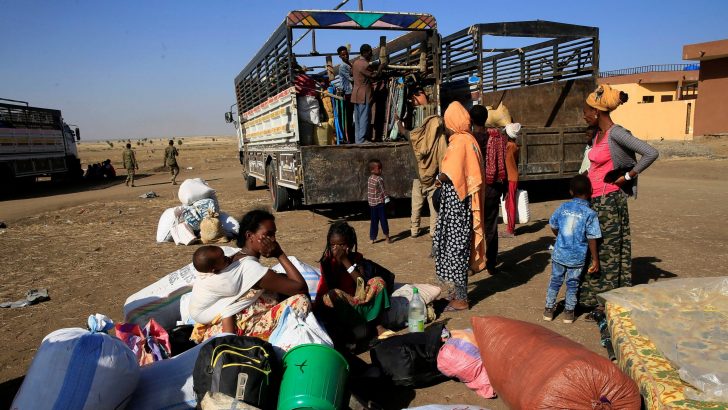In the midst of the conflict in Ethiopia’s Tigray region, thousands of Eritrean refugees who fled oppression and authoritarianism have been deported back to their home country, said an Eritrean Catholic priest.
Fr Mussie Zerai, a priest of the Archdiocese of Asmara, Eritrea, who works with migrants, said the refugees were in Schimelba and Hitsats camps, which hosted about 20,000 refugees. He said about 10,000 of them were deported to Eritrea.
The refugees are part of the 96,000 who were hosted in four camps in Tigray. The Eritreans had fled political persecution, compulsory military service and war back home.
“About 5,000 managed to escape and reach the Mai-Aini refugee camp, which now houses over 20,000; 5,000 people are missing,” Fr Zerai told Catholic News Service.
“What happened in the refugee camps in Tigray is a cruel violation of the Geneva Convention of 1951,” which relates to the status of a refugee, the priest said. “We know there have been violence and killings.”
Fr Zerai, chairman of Habeshia, a humanitarian organisation that advocates for migrants and refugees’ rights, said it was not clear what happened to those who were deported. Some news reports indicate the refugees are being held in prisons.
“We know that they are considered deserters and therefore await their arrest and a period of ‘correction and re-education,’ according to the regime’s modalities. The use of violence and torture often abounds, especially for those who had been staff of the regime’s army,” said the priest.
“After the punishment period is over, if they survive, they will be forced to return to military service and national service,” he added.
Fr Zerai said the government of Ethiopia, which was supposed to guarantee safety in the camps, bore the greatest responsibility for the latest development in the settlements. He called for an immediate investigation into attacks, rape of women, killing of children and the deportations.
“The UN must investigate every aspect of this horrible fratricidal war,” he said.
Fighting in Tigray, a semi-autonomous region in northern Ethiopia, started November 4 after Prime Minister Abiy Ahmed Ali sent the federal army to fight the Tigray People’s Liberation Front, which ruled the semi-autonomous region.


 Ethiopians who fled the ongoing fighting in the Tigray region prepare to board courtesy trucks in Hamdayet on the Sudan-Ethiopia border. Photo: CNS
Ethiopians who fled the ongoing fighting in the Tigray region prepare to board courtesy trucks in Hamdayet on the Sudan-Ethiopia border. Photo: CNS